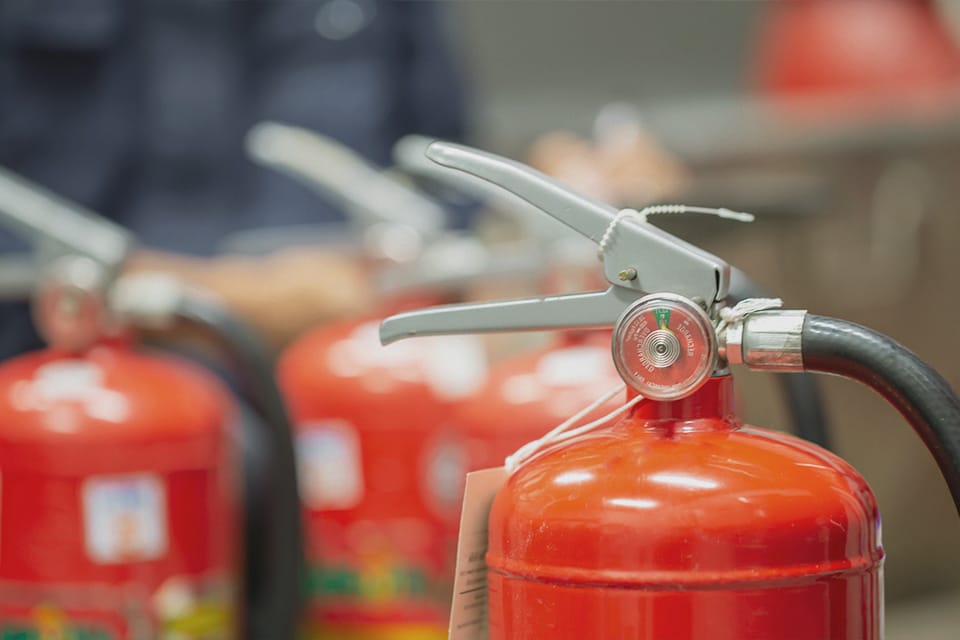
NIOSH Is Back: Here’s What You Need to Know | Risk Matrix Episode 126
THE RISK MATRIX Cutting-edge podcast on occupational safety and risk management. Hosted by industry titans: JAMES JUNKIN, MS, CSP, MSP,…

The oil and gas industry has various risks with fire hazards near the top of the list. That’s why fire safety training is crucial to prevent accidents and protect workers. Furthermore, it helps to be ready for dangers when dealing with flammable materials during their extraction, processing, and transportation. A fire on the job site can cause significant property damage, environmental catastrophes, and most importantly, risk workers’ lives.
Comprehensive fire safety training is not just a regulatory obligation; it is a proactive strategy to protect workers, assets, and the environment. This article outlines why training for a fire emergency is necessary for oil and gas companies.
Comprehensive training is vital to equip workers with the necessary skills and knowledge to prevent, control, and respond to fire emergencies safely and effectively. It involves understanding common fire hazards, learning specific actions to ensure their safety and the safety of others, and fostering continuous learning and development initiatives.
Fire safety training is not a one-time event but an ongoing journey of learning and development. Through regular drills, simulations, and knowledge updates, workers reinforce their proficiency in fire prevention strategies, emergency response protocols, and evacuation procedures. In many jurisdictions around the world, fire safety training should be refreshed every 12 months.
The oil and gas industry handles highly flammable substances such as crude oil, natural gas, and petroleum derivatives on a daily basis. Without adequate fire safety training, the slightest ignition can escalate into a catastrophic inferno, jeopardizing lives and infrastructure.
The intricate nature of oil and gas operations introduces manifold opportunities for fire hazards to manifest. From drilling operations in remote locations to offshore platforms, every facet of the industry demands a vigilant approach to fire safety.
The Deepwater Horizon disaster in 2010 put a spotlight on the catastrophic consequences of a fire and explosion on an offshore drilling platform. This memorable accident led to fatalities and was one of the worst environmental disasters in history.
Fire safety training empowers workers with the knowledge to identify and mitigate common fire hazards proactively. The oil and gas industry operates within a dynamic environment filled with various fire hazards. These include combustible materials, flammable gases, and volatile liquids.
From drilling rigs to refineries, every corner of the industry presents unique challenges that require attention to fire safety protocols.
By instilling a culture of prevention, fire safety training enables workers to implement proactive measures such as:
Effective emergency response and evacuation plans are indispensable components of fire safety training. Through realistic simulations and scenario-based exercises, workers perfect their ability to respond swiftly and decisively during fire emergencies, ensuring the safety of personnel and assets.
It is crucial that companies not only understand the full environmental impact of their operations but also the impact of a potential incident. Beyond the immediate threat to human life and property, uncontrolled fires in the oil and gas industry pose significant environmental risks. Fire safety training drives home the importance of containment and mitigation strategies to prevent the release of hazardous substances into the environment and nearby communities.
Compliance with fire safety regulations is not just a legal obligation; it is a moral imperative. By adhering to industry standards and regulatory frameworks, oil and gas companies demonstrate their commitment to prioritizing safety and minimizing operational risks.
Companies should be aware of local, national, and international training regulations for the jurisdictions in which they operate. Compliance signifies their commitment to responsible stewardship, and operational integrity and fosters a strong safety culture.
Fire safety training serves as an anchor in the risk management structure of the oil and gas industry. Furthermore, by ensuring workers have the knowledge, skills, and mindset necessary to confront fire hazards head-on, companies mitigate the threat of major incidents while fostering a culture of safety, resilience, and preparedness. In an industry where the stakes are high and there is little room for errors, investing in training is not just an important choice—it is a necessity.
Team up with Veriforce to ensure you have the right training programs in place to manage risk on your job sites and create a safer work environment for all workers.
Contact us today to learn more.


THE RISK MATRIX Cutting-edge podcast on occupational safety and risk management. Hosted by industry titans: JAMES JUNKIN, MS, CSP, MSP,…
We’ll send you practical and insightful supply chain risk management info that can benefit your business. Plus, important company updates that keep you in the loop.
